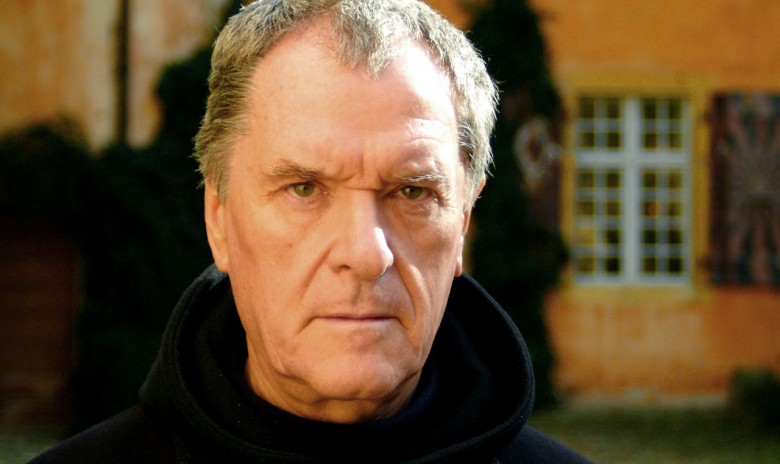foto mix
Jaxa-Kwiatkowski Piotr
(born in 1945 in Borówna next to Bochnia). Cinematographer and photographer. In 1969 he graduated from the Direction of Photography Department at the National Film School in Łódź. He was moulded by contemporary documentaries, in which he also took his first steps as cinematographer by co-shooting several dozen of documentaries in the upcoming years. Particularly important for him are Tomasz Zygadło’s “Szkoła podstawowa” and Krzysztof Kieślowski’s “Z miasta Łodzi”, “Gadające głowy” as well as “Przed rajdem”. With the latter, the cinematographer, together with Jacek Petrycki, had to demonstrate real creativity to shoot without professional equipment Krzysztof Komornicki’s preparation for his start in the Monte Carlo Rally. “We did not have a light sound camera – reminisced Jaxa – that is why we registered merely the image. We covered the really loud working camera with a pillow and we shot with a 180mm lens. Thanks to that, while shooting from afar, we obtained close-up portraits”1.

© P.JAXA
In fiction films, Jaxa worked initially as Zygmunt Samosiuk’s camera operator. He was also responsible for taking stills, for instance at the film set of Andrzej Trzos-Rastawiecki’s “Zapis zbrodni” He was the camera operator in Krzysztof Zanussi’s “Bilans kwartalny” and Andrzej Wajda’s “Dyrygent”, both shot by Sławomir Idziak. As a self-reliant cinematographer, he was able to spread his wings in the early 1980s. This is when he shot Sławomir Idziak’s “Bajki na dobranoc”, but soon, after martial law was declared in Poland, he fled to Switzerland. “Suddenly, from one day to the next, I became »no one« - remembers Jaxa – I had to start everything from scratch – an incredibly important experience that ploughed my mind and awakened my hidden energy. (…) In 1982 in Switzerland I had to stop filming, because nobody wanted to hire me as a cinematographer, and so I started to work as a newsman in the Japanese KTV. I understood what professionalism means and accepted the high demands that life in here has”2.
In the 1990s he came back to the collaboration with Krzysztof Kieślowski, becoming responsible for taking stills in all three parts of “Trzy kolory”. Jaxa claimed that “such a long work, each and every day for seven months – had to give an effect. I believe that several pictures were accurate in grasping the truth about the person one has known for so many years and one likes. Krzysztof is a very compelling man to photograph”3. It is worth to specifying that Jaxa on the “Trzy kolory” set took nearly ten thousand stills and werk photos. A close relationship with Kieślowski resulted in photographs that are far more than a mere photographic record of the way “Trzy kolory” were created. Kieślowski allowed Jaxa to photograph him in various situations on the set, so that Jaxa’s collection is the most detailed and richest documentation that shows Kieślowski’s work as a film director, his way of guiding people on the set and conversing with them, and last but not least – his way of creating mise-en-scene.
Piotr Jaxa works not only as a cinematographer (his last film is Greg Zgliński’s “Zwierzęta”) but also as an independent photographer. He has accomplished four photographic albums. His life’s work may be the project he has been working on since 1995: the album “Cinematographers” contains photographs of cinematographers from around the globe. Up to now, he managed to photograph 130 artists from 24 countries from four continents.
Piotr Jaxa is a member of the Swiss Cinematographer Society (SCS), in 2009 he was honoured with a Lohn-Ammannsegg award for the life achievement and invited to sit in the Swiss Film Academy. In 2018 the artist was nominated for the Swiss Film Prize “Quartz” for his work on “Zwierzęta”.
Piotr Śmiałowski
1. P. Jaxa,„Krzysztof Kieslowski – in memoriam”, interview conducted by: J. Tokarczyk, Film & TV Kamera, no. 1 (2018), p. 25.
2. P. Jaxa, „Sekretne ogrody”, interview conducted by: M. Lebecka, Film & TV Kamera, no. 1 (2003), p. 61-62.
3. P. Jaxa-Kwiatkowski, „Moje książki traktuję jak filmy”, interview conducted by: T. Sobolewski, Kino, no. 9 (1993), p. 40.




